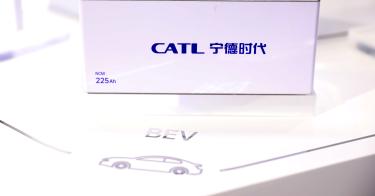With Ford’s announcement that it would suspend work on its $3.5 billion Michigan–China battery partnership due to the United Auto Workers strike, the beleaguered company may have extricated itself from a political briar bush.
The proposed Marshall, Mich., plant is planned in cooperation with Chinese battery behemoth Contemporary Amperex Technology Co. Ltd. (CATL), one of the world’s largest battery producers. But Congress allocated over $7 billion in electric-vehicle tax incentives in the Inflation Reduction Act for domestic, not Chinese, production.
Ford located the enterprise in Michigan when Virginia governor Glenn Youngkin decided to remove his commonwealth from competition for the plant, on the grounds that such an alliance was against American interests. Macauley Porter, a Youngkin spokesperson, said to the Detroit News, “While Ford is an iconic American company, it became clear that this proposal would serve as a front for the Chinese Communist party, which could compromise our economic security and Virginians’ personal privacy.”
>>> EPA’s New Vehicle Emissions Rule Would Drive Cars and Trucks Off the Road. It’s Also Illegal.
Youngkin was prescient, because Ford has been under attack for the partnership ever since Michigan governor Gretchen Whitmer’s enthusiastic welcome. The core of the problem: Beijing would have some control over both the technology and the factory operations at the plant, as well as scooping up millions in IRA tax credits designed to make America less reliant on China.
China dominates battery technology, accounting for over 70 percent of global electric-vehicle-battery-production capacity. CATL, as the largest producer in the industry, profits from close relations with the Chinese Communist Party (CCP).
If people bought EVs the way they buy cars with internal combustion engines, Uncle Sam would not have to subsidize producers to make EVs and fund tax credits for consumers to purchase them. Ford receives no subsidies for production of America’s bestselling vehicle, the F-150 pickup truck, and purchasers receive no tax credits for buying them. But subsidies are needed for EVs, and they shouldn’t go to Chinese battery companies.
Ford doesn’t need to partner with China because it has other options. It’s working with South Korean SK Innovation to build batteries at the BlueOval SK Battery Park in Glendale, Ky.—a $6 billion investment. Kentucky also has a $2 billion battery plant built by Japanese Envision AESC, which is building other battery plants in South Carolina and Tennessee. South Korea’s LG and Hyundai are opening a $4.3 billion plant in Georgia.
But China’s advantage is its control of minerals that are crucial ingredients for the batteries, often mined in environmentally questionable ways with low-wage, child, or even slave labor, and facilitated by the Chinese Communist Party. This seamy story gives Ford’s partnership with CATL a bad scent.
CATL sources lithium from its operations in western China’s Qinghai Province, aided by government funding. Some of its cobalt comes from Kisanfu, in the Democratic Republic of Congo, where it purchased 25 percent of the Kisanfu copper and cobalt mine, owned by China Molybdenum, in 2021 for $137 million.
>>> Biden’s Plan To Phase Out Gas-Powered Cars Is All Pain for Consumers and No Gain
The CCP requires electric cars sold in China to have Chinese-made batteries for buyers to qualify for credits. GM changed the batteries in its electric Buick Velite from South Korean LG batteries to CATL batteries in 2016 to comply with Chinese regulations, according to a New York Times report. The Buick Electra E5 sold in China, will have CATL batteries, while the Electras sold in America will have batteries from South Korea’s LG Energy Solution.
In December, Honda signed an agreement with CATL to purchase enough batteries to power 1 million electric vehicles from 2024 through 2030. The Honda vehicles will be made in China, and potentially exported to America.
With CATL receiving help through subsidies and favorable regulations from the CCP, American tax credits shouldn’t help the company grow further. The Michigan Ford–CATL plant would enable the CCP to benefit from tax credits in the Inflation Reduction Act, designed by Congress to enable Americas producers.
If electric vehicles were to overtake the internal combustion engine—which is as yet unclear—America should not accept replacing its current energy independence with a dependence on an EV supply chain controlled at various key points by China.
The UAW strike is a welcome excuse for Ford’s pause on the Michigan plant. It is poor public relations for Ford to choose Chinese over American interests when China is engaged in an economic war with democracies around the globe.
This piece originally appeared in the National Review



